Have you entered our Summer competition yet?
Posted on 06 August 2022 by Mr Roundtree
Stay alert to happy and healthy faces all around you…
We want to see your pics of hidden smiley faces in your surroundings: a walk in woods or a play on the beach might include creating a smiley face, for example! Here’s our suggestion (look for the smiling face!)…
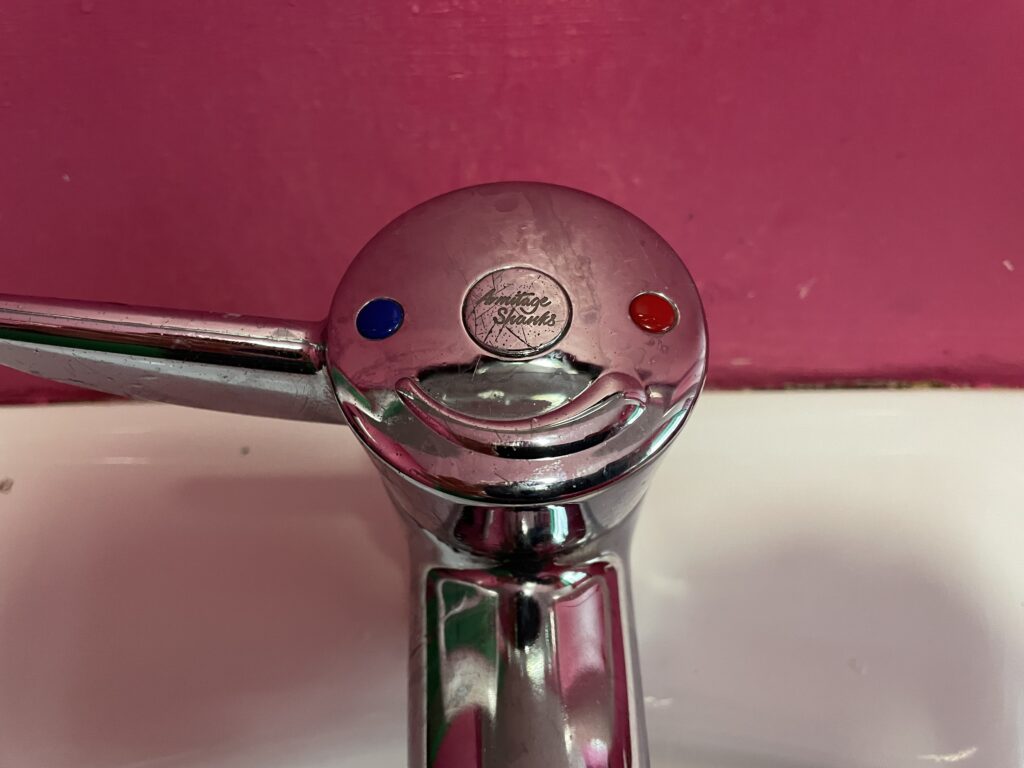
…but we’re sure you can do better!
Look out for things around you that show a hidden smiley face – a happy and healthy face – or encourage your child to create their own from things around them (pebbles, leaves, Lego…). (Just avoid obvious and intended smiling faces like the ones featured in the Breeze list of summer dates from last week’s message – they’re too easy to spot!)
To enter, email your pics to stjamesoffice@spherefederation.org by Friday 09 September. Enter ‘Summer competition’ as the subject.
All entries will be displayed in a happy and healthy display in school, and there are prizes for our favourites.
Our Summer competition
Posted on 25 July 2022 by Mr Roundtree
We’re a happy and healthy place to achieve and believe!
Over the Summer weeks, we want you all at home to stay alert to happy and healthy faces all around you… and take a pic of any hidden smiley faces in your surroundings: a day out at the beach might include creating a smiley face, for example! Here’s our suggestion (look for the smiling face!)…

…but we’re sure you can do better!
Look out for things around you that show a hidden smiley face – a happy and healthy face – or encourage your child to create their own from things around them (pebbles, leaves, Lego…). (Just avoid obvious and intended smiling faces like the ones featured in the Breeze list of summer dates from last week’s message – they’re too easy to spot!)
To enter, email your pics to stjamesoffice@spherefederation.org by Friday 09 September. Enter ‘Summer competition’ as the subject.
All entries will be displayed in a happy and healthy display in school, and there are prizes for our favourites.
This week’s message part 2 (Friday 22 July 2022)
Posted on 22 July 2022 by Mr Roundtree
The bulk of our last message of the school year comes from Miss Beatson. Before that, we’ve an updated uniform policy. Also, we’ve been asked by Leeds City Council to provide you with some important information…
Uniform
Most parents and carers stock up on fresh uniform over the summer holiday, so we want to let you know about our updated policy now.
This year, we’ve been trialling something we introduced in Covid times: wearing PE kit on PE days. Overall, we like this: it increases time for PE (no changing into kit) and there’s less lost property. However, we’ve seen some deviation from our uniform policy on PE days with some branded tops and shorts sneaking in. Check out our updated policy, especially the part about PE kit. We hope you’ll agree that the changes should actually save you money and be much more convenient for you.
Prevent
This letter is to help raise your awareness of the dangers of radicalisation and to let you know where to get more information, advice and support if you do have any concerns. This leaflet provides a summary about the Prevent programme and how, through the ACT Early website and Support Line, those who are vulnerable to radicalisation can get the help they may need.
And now over to Miss Beatson…
Another year is almost done and what a wonderful year we have had! It’s been so lovely to be able to go back to normal school life. We’ve been able to have parent visits to classrooms, coffee mornings, church services, KS2 productions, school trips and a Year 6 residential – all so important for our children.
The last week of the year is always busy but it’s especially busy for our Year 6 children. With productions, leavers’ service, leavers’ assembly and high school transition meetings, it’s certainly been an intense week. However, the children have embraced every moment, showing resilience and maturity, which makes me confident they’re ready to move on to secondary school. We wish them all the best for the future.
We’re saying a few goodbyes to staff, too: Mrs Flynn, Mrs Boulton and Mrs Wood, but we’ll continue to work with them as they’re still teaching in Sphere Federation. Mr Mills is also leaving to concentrate on his successful coaching company.
We’re going to miss them all so much and I’d like to thank them for all their hard work and commitment.
With departures come arrivals. In September, Mr Freeman will join the Year 5/6 class, Miss Kay will be in Year 2, and Miss Ward in Nursery. Mrs Payne will be the teacher in Reception, although she has been with us at St James’ for the last few months. We’re looking forward to welcoming them all to our school family.
I hope you all manage to relax, have fun and spend some quality time with your children this Summer. I look forward to seeing lots of happy and healthy faces on Tuesday 06 September.
Joseph and the Amazing Technicolour Dreamcoat
Posted on 20 July 2022 by Miss Beatson
Tonight, Key Stage 2 performed Joseph and the Amazing Technicolour Dreamcoat- it really was amazing! The children sang their hearts out and made everybody really proud. Thank you to all the staff who put together a fantastic show and a special shout out to Mrs Valentine’s Mum who spent many hours creating the iconic dreamcoat.
Well done to all the children- it was a huge success!

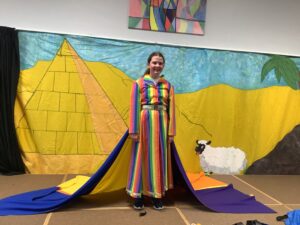
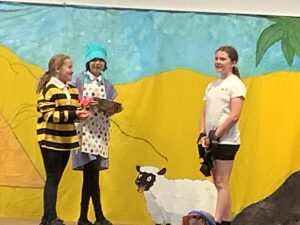
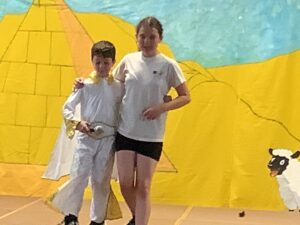
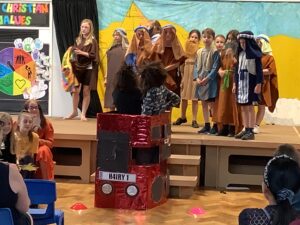
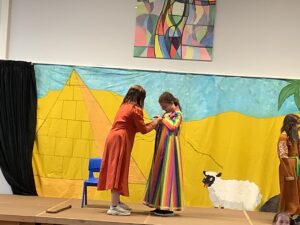


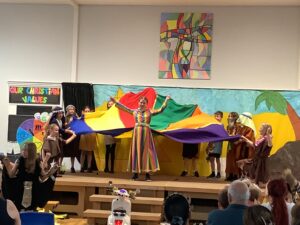
This week’s message part 1 (Tuesday 19 July 2022)
Posted on 19 July 2022 by Mr Roundtree
It’s the last week of term. This week, we’ve two messages.
This first one kicks off with a thank you to all of you who worked with us, sending your child into school despite the extreme temperatures. We worked hard to ensure the children remained as comfortable as possible – on the whole, I think we succeeded!
The rest of this message has contents that come from other organisation, but which you may find helpful, especially the first item…
Using A&E?
Leeds Teaching Hospitals are experiencing extreme demand for services. They’re seeing increasing visits to paediatric emergency department with needs that may be better met in other ways.
With consistent, accurate and trustworthy healthcare advice, the West Yorkshire Healthier Together website is available to support families to decide if a visit to A&E is appropriate.
The information on the site has been reviewed by local paediatricians, GPs and clinicians across the region to ensure it aligns with current practices and procedures.
You can use the quick links, search bar, or menus to find clear advice with easy to use traffic light guide, red, amber, green found in the parents/carers section. This will help to identify when, where, and how you should seek help for your poorly baby or child.
Parent and carers can also look through the site for practical guidance such as ‘should my child go to school’.
Music summer club
Leeds City Council and ArtForms are hosting free music summer clubs this August, with a range of music activities for children in Leeds aged 8 and above.
The sessions will take place between 08 and 10 August at Horsforth School. Read more.
Child friendly Leeds
This July marks the tenth year since the launch of Child Friendly Leeds. To mark the event, you and your child might want to attend the Our Leeds Wishes Display | Leeds Inspired this weekend.
Look out for our final message of the school on Friday.
Extreme temperatures - an update
Posted on 18 July 2022 by Mrs Quirk
We’ve coped well today in the heat, helped by moving classrooms, cool clothing and staying in at break times.
However, by mid-afternoon, it was uncomfortable around school.
The peak temperature of 38 degrees is predicted between 2.00pm and 4.00pm. Based on this, we’re suggesting a pick-up time of 1.30pm tomorrow, Tuesday 19 July, if you can.
Extreme temperatures forecast
Posted on 17 July 2022 by Mr Roundtree
We all know about the extreme temperatures forecast for the first part of next week. The Department for Education is not advising that schools close; instead they have issued guidance to schools.
Please note there is a possibility we may need to close early, or invite you to collect your child from 1.30pm. We’ll let you know if this is the case as soon as we can.
Apologies: we haven’t advised on this earlier as we’ve been waiting more guidance and continued monitoring of weather forecasts. (And a lot depends on the day: a strong breeze, like today, will help make the next couple of days bearable, if there is one.)
In case you missed Friday’s message, the guidance sets out sensible points to follow – make sure you consider each of the following:
- make sure your child comes to school with a large bottle (it could have water previously frozen)
- your child should wear a sun hat and loose, cool clothing (we’re relaxing the rules around school uniform – replace uniform items with things that are cooler eg open sandals rather than shoes, uniform shorts with lighter PE shorts – try to stay as smart as possible)
- your child should be wearing Factor 50 sunblock when they arrive at school and may apply more during the day
In school, we’ll take as many actions as we can. These will include indoor lunchtimes, avoiding vigorous activity, and avoiding being in large groups in one indoor space for a longer time.
This week’s message (Friday 15 July 2022)
Posted on 15 July 2022 by Mr Roundtree
It’s our penultimate message of the year… This one’s mainly about the Summer Fayre and our recent SIAMS inspection. There are also two links to other things if you’re interested.
Before we start the message, a note about extreme temperatures forecast for the first part of next week. The Department for Education is not advising that schools close; instead they have issued guidance to schools. The guidance sets out sensible points to follow – make sure you consider each of the following:
- make sure your child comes to school with a large bottle (it could have water previously frozen)
- your child should wear a sun hat and loose, cool clothing (we’re relaxing the rules around school uniform – replace uniform items with things that are cooler eg open sandals rather than shoes, uniform shorts with lighter PE shorts – try to stay as smart as possible)
- your child should be wearing Factor 50 sunblock when they arrive at school and may apply more during the day
In school, we’ll take as many actions as we can. These will include indoor lunchtimes, avoiding vigorous activity, and avoiding being in large groups in one indoor space for a longer time – this might mean we have to postpone or cancel productions.
Summer Fayre – thank you!
Thanks to everyone who cam along to the Summer Fayre last week – and a big thank you to the PTA for organising such a wonderful event. The total profit was £1203.93 – a magnificent achievement! PTA say: ‘We are so thankful for all of the parents/carers support and we hope you enjoyed it’ – we certainly did!
The school’s vision of creating a ‘happy and healthy place to achieve and believe’ is passionately lived out by the entire school community.
We’re really proud of our recent SIAMS inspection!
SIAMS stands for the Statutory Inspection of Anglican and Methodist Schools – all church schools in England are regularly inspected, mainly to evaluate the extent to which church schools are ‘distinctively and recognisably Christian’. We were last inspected in 2022 and were judged to be good. Read the report.
Highlights include…
Leaders value and believe in each and every member of this community and the nurturing support they provide for individual parents, pupils and staff is transformational.
The vision lies at the heart of the school’s ambitious curriculum, which inspires pupils to believe that they can flourish and achieve.
The school’s vision of creating a ‘happy and healthy place to achieve and believe’ is passionately lived out by the entire school community.
Through his inspirational example of servant leadership, the head of federation is transforming this school, day by day, into a place where everyone is nurtured and supported to enable them to live ‘life in all its fullness’.
The head of school has worked tirelessly since her appointment to develop the school’s partnership with parents and carers. Exceptional care and support have been provided for individual parents when needed
Leaders and staff know each child and parent as an individual and they are therefore able to quickly recognise any barriers or challenges their families may be facing.
Governance
Governing bodies aren’t required to produce an annual report; however, Sphere Federation governors believe communicating with our school community is important. Check out their annual governance statement.
Summer Fun
Breeze is for all children and young people aged 0-19 from Leeds (and their families) who are looking for positive things to do. Although Breeze is run by Leeds City Council, the information they list comes from all sorts of organisations and partners working positively with children, young people and their families in Leeds, not just the council. Check out the 27 days of fun: Breeze in the Park.
Have a good weekend. Next week, look out for the return of our Summer competition!
This week’s message (Friday 08 July 2022)
Posted on 07 July 2022 by Mr Roundtree
It’s a busy time of year in school. Sports day, productions, reports… This week, you should have received an end-of-year report for your child – if you haven’t, please let us know.
At this time of year, you might be already thinking about uniform for next year. This week’s message starts with a reminder that we’ve updated our school uniform policy…
School uniform
Due to a recent change in guidance about school uniform, we’ve recently updated our school uniform policy.
Wearing a school uniform brings with it many benefits, and everyone following the policy brings a sense of fairness.
There’s no change as to what uniform is required in our policy: as has always been the case, branded items are available, but they’re optional. As well as having at least three suppliers for branded items (with different price ranges), you’re able to purchase generic items from a range of retailers, giving you choice and value for money. Second hand uniform items can also benefit parents / carers and, by extending the life of items, are more sustainable. Some items may be available in school (unclaimed and unnamed lost property at the end of term) or at the Leeds School Uniform Exchange. Check out the website for more information on suppliers and the policy.
We do expect all children to follow this policy, including wearing the correct kit on PE days.
Thank you for supporting us with this.
TikTok
Last week’s message mentioned TikTok. Here’s an extract from a weekly email we receive from a safeguarding expert:
A few days ago I spent a rather disturbing half-an-hour on TikTok… Clicking in to TikTok Live was worse than I had thought it would be… there were a number of video streams that I think should concern us from a safeguarding perspective. Livestreams from the school bus, school playgrounds and even from tutor time in classrooms. There was even a group of primary aged boys trying to out-swear each other while they waited for the bell.
Check out these parents’ guides: one from Common Sense Media and one from Internet Matters.
Some summer reading
You might like to read the latest edition of Raring2go. It’s got lots of ideas for the Summer holidays.
Some summer support
The approach to providing free school meals during holidays has changed in line with government guidance.
As a result of this change in government guidance, Leeds City Council has decided to support those households in receipt of council tax support. This will include most households receiving free school meals but this will no longer be the driver of eligibility. More detail on how the council is spending the funding can be found here.
Anyone in urgent need of support for food, rent and other household bills can contact the Leeds Welfare Support Team. Details are available at: Help with food and bills (leeds.gov.uk). The Healthy Holidays scheme will also continue to provide support during the summer holidays to those most in need.
The forecast is looking good… Have a happy and healthy weekend!
This week’s message (Friday 01 July 2022)
Posted on 01 July 2022 by Mr Roundtree
Our message this week is a short one, but an important one. We know we send lots of messages about online safety, but please do take on board what we’re saying – this year, we’ve experienced more issues, and more serious issues, than ever before.
Ofcom recently published a report looking at media use, attitudes and understanding among children and young people aged 3-17. It also includes findings on parents’ views about their children’s media use, and how parents of children and young people aged 3-17 monitor and manage their children’s use.
The summary of key points (below) comes from a safeguarding email we receive each week in school. The bold text is from us:
- Children were more likely to experience being bullied via technology than face-to-face: 84% of 8-17s said they had been bullied this way (ie via text or messaging, on social media, in online games, through phone or video calls, or via other apps and sites).
- Nearly all children went online in 2021 (99%); the majority used a mobile phone (72%) or tablet (69%) to do so.
- Using video-sharing platforms (VSPs) such as YouTube or TikTok was the most popular online activity among children aged 3-17 (95%).
- Among all types of online platforms, YouTube was the most widely used by children; 89% used it, compared to half using TikTok. But TikTok was more popular than YouTube for posting content.
- A majority of children under 13 had their own profile on at least one social media app or site; 33% of parents of 5-7s said their child had a profile, and 60% of 8-11s said they had one. This is despite the minimum age for most social platforms being 13.
- Just four in ten parents of 3-17s knew the minimum age requirement for using most social media; 42% correctly said 13. Four in ten parents of 8-11-year-olds said they would allow their child to use social media (38%).
- Six in ten children aged 3-17 played games online in 2021, increasing to three-quarters of 12 – 17s.
- More than a third of 8-17s who gamed online played with people they didn’t know (36%); overall, 16% of 8-17s chatted to people they didn’t know, via the messaging/ chat functions in games. You wouldn’t let your child play out with random strangers – for the same reasons, talk to you child about who they may be chatting with online.
Check out our online safety tips.
As always, if you’ve any questions, comments or concerns, do speak with us.
Have a good weekend.